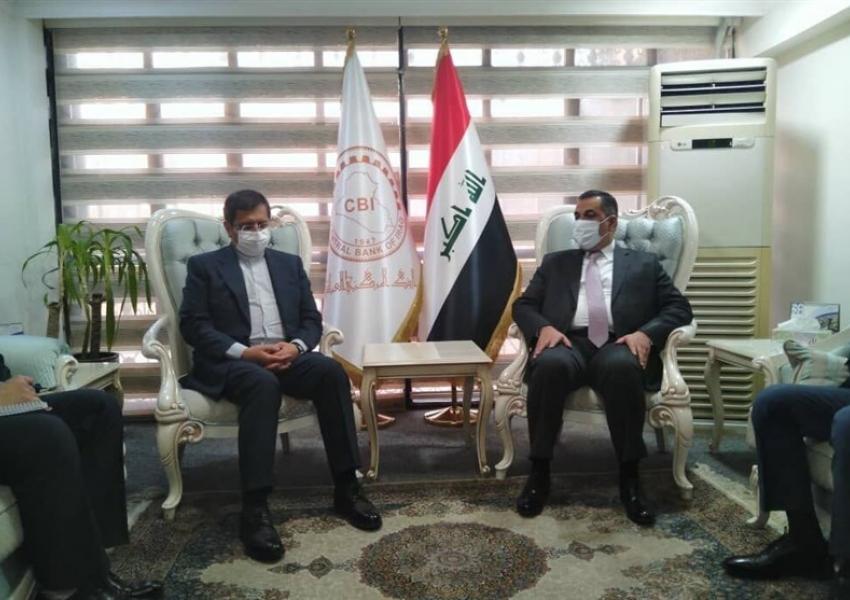
US Gives Green Light For Frozen Iranian Funds To Flow From Iraq, Official Says
Iran has received some payments from its funds frozen by Iraqi banks, including the state-owned Trade Bank of Iraq, after agreement by Washington, Hamid Hosseini, Secretary General of the Iran-Iraq Chamber of Commerce, said on Friday [March 5] citing a “reliable source” in Iraq. Hosseini, who made the announcement in a tweet, said the funds would help Iran buy basic commodities ahead of the Iranian New Year (starting March 21).
Iraq owes Iran over $6 billion, mainly for electricity and gas imports, which has been frozen by Iraqi banks wary of possible United States secondary sanctions that under Washington’s ‘maximum pressure’ on Iran threaten anyone dealing with the Iranian financial sector.
Despite the US several times issuing sanctions wavers including a 90-day waiver for energy trade with Iran in January, monies owed to Iran have been stuck in branches of different Iranian banks in Iraq or deposited in a special account at the Trade Bank of Iraq, to which until now Iran has been denied access.
Iraqi officials have not reacted to Hosseini’s claim. Earlier on Friday the Arabic Twitter account of Aljazeera quoted an adviser to Iraqi Prime Minister, Mustafa Al-Kadhimi, that Washington had agreed to Tehran using some of the funds held in Baghdad for humanitarian purposes.
Following Kadhimi’s visit to Tehran last week, Iranian Energy Minister Reza Ardakanian told reporters that Iraq’s debts had been discussed and there was “no cause for worry” over payments in future.
Iran’s Central Bank Governor Abdolnaser Hemmati, after visiting Baghdad on October 12, said Iran had $5 billion in assets blocked in Iraqi banks. “Tens of billions of dollars of our assets are frozen in foreign banks,” he said. “Even countries that have good relations with Iran cannot cooperate with us due to the US pressure.”
Iran has been in a stand-off with South Korea since February 2020 over billions of dollars frozen there. On February 24, Hemmati said $1 billion of Iranian assets was going to be transferred from South Korea to Iran “in cash,” while Seoul stressed that releasing the funds required Washington's consent.
On October 22 Aysar Jabbar, spokesman for Iraq’s Central Bank, told Iran International that before the US in 2018 left Iran’s 2015 nuclear deal and imposed ‘maximum pressure,’ Iraq had paid for Iranian imports with US dollars. The amounts were substantial, with Iran’s exports to Iraq between March 2018 and March 2019 amounting to nearly $9 billion.
But when the US then threatened any country against using the dollar in trade with Iran, Jabbar explained, Iraq paid Iran in Iraqi dinars. With the subsequent deepening of US sanctions, the Iraqi Central Bank restricted all banking transactions with Iran. Jabbar said that dinar payments to Iran were ruled out, even through the Iraqi branches of the Iranian banks, Melli, Parsian and the Islamic Bank, which hold most of the frozen Iranian assets.









